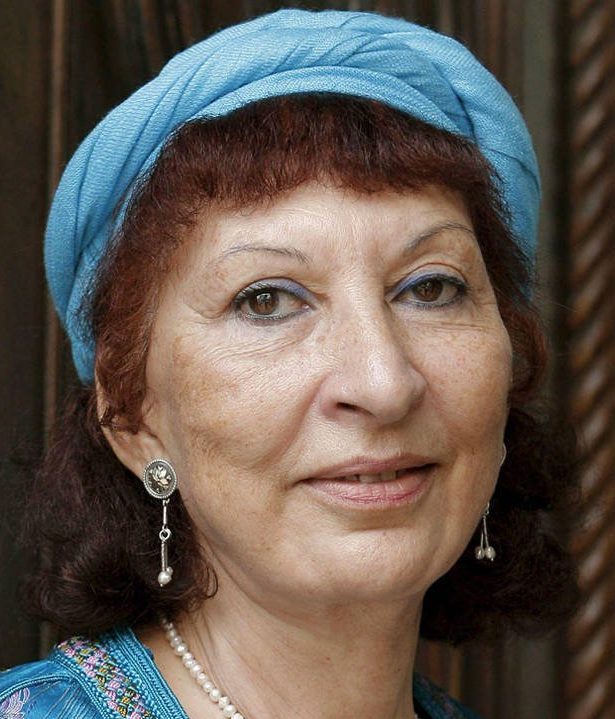
Islamic feminists believe that religion, any religion, is not as is commonly believed a source of oppression for women, and their evidence for this is the continued oppression of western women in the capitalist system. Although western women have detached themselves from the Christian religious systems as the source of oppression, or have wanted themselves to be liberated from it, oppression of women in the West nevertheless persists, and until now the issue of gender equality has yet to be resolved.
THE PROBLEM LIES in the control of masculine authority over the understanding and interpretation of religious texts and their application in reality. This anti-women authority derives its legitimacy from the masculine vision and reading of religion, and not from religion itself.
What then are the mechanisms that feminist Islam employs in its reformist approach?
Feminist Islam relies on a set of mechanisms that combine deconstruction with seeking the deep rooting. We may mention some of them:
A new reading of the Qur’an
This movement envisages a new hermeneutical school that seeks to re-appropriate the sacred Text and considers the Qur’an as not establishing an ontological distinction between the male and the female, and that it is the masculine interpretation of the sacred Text that has obfuscated the equality between the sexes.
The movement was founded and derived its seed from two studies on Qur’anic interpretation that have become famous today: Amina Wadud’s study entitled Qurʼan and woman rereading the sacred text from a woman’s perspective and Asma Barlas’ study entitled “Believing Women” in Islam: Unreading Patriarchal Interpretations of the Qur’an.
In this regard, Amina Wadud notes that
my book, which was published in 1999 under the title The Qur’an and Women is considered by many today to be the first interpretation of the Qur’an from a feminist perspective, as well as a basic text for what is known as ‘feminist Islam’. But I do not call myself a ‘feminist activist’, but rather an activist for religion – that is, an activist for the faith. I am also quite certain that there can be no call from God that is not addressed equally to men and to women. Therefore the issue is perforce one of abolishing patriarchy – not in order to institute a new stratification but for the sake of creating a real relationship of mutuality between human beings.
A deconstructive reading of the hadith of the Prophet
Applying research and investigation methodologies to the noble hadith and deconstructing their elements make their contributing to crystallizing the project of the Islamic feminist movement by refuting the misogynistic hadiths. This is because the sayings and actions of the Holy Prophet constitute an example for Muslims to follow and constitute the supreme model of Islam as a living example. When people use hadiths such as those merely attributed that state that women are “lacking in common sense and failing in religion”[1] or that “never will succeed such a nation as makes a woman their ruler”[2] or others of this type as if they were authentic – so as to exclude and banish women or put them in ‘the place allotted to them’ – it is as if someone is assuming that the Holy Prophet was an enemy of women. This, of course, is not possible because it contradicts the noble Qur’anic values.
“Deconstructing like this the honourable Sunna of the Prophet and purifying them” Refaat Hasan argues
“is the most important mechanism that feminist Islam can employ to bring about a new awareness that the Holy Qur’an is more equitable with regard to gender, and that most of the rulings that are unfair to women are deriving their sources from the hadith.”
Similarly, the Moroccan sociologist Fatima Mernissi and the Turkish religious scholar and hadith specialist Hidayat Tuksal, who both employ traditional Islamic research methodologies of ta‘dil wa-tajrih (‘justifying and defaming’),[3] consider that these anti-women hadiths are all of them fabrications and forgeries.
Critiquing fiqh
Many researchers rely on techniques deconstructing the traditional jurisprudential system, which they consider to be masculine and a mirror of patriarchal society, one that is based on the domination of the strong over the weak. Some researchers consider that this jurisprudential system has since ancient times sought to intensify and dominate thought, and has fought against ijtihad, that is, against rational and independent legal judgement concerning the religious sources.
This movement envisages a new hermeneutical school that seeks to re-appropriate the sacred Text
Mir Hosseini, for example, believes that the merging between the Qur’an and jurisprudence is the main source of tension between from Islam’s vision of equality and the patriarchal historical context of the revelation of the Qur’an, in addition to a rigid literal reading of the texts carried out at the expense of a dynamic reading of its purposes.
The mechanism of ijtihad (independent legal reasoning)
Amani Saleh considers that the issue of ijtihad reflects a comprehensive cultural vision of life, an inevitable issue demanded by the qualitative transformations that have occurred in women’s actual role in society, in their self-awareness and capacities.
This movement has activated the role of women in the arena of the religious sciences, and spurred them to initiate a number of ijtihads with respect to several verses specific to rulings concerning women: rulings such as legal testimony, dowry, male superiority, obedience, nushuz (rejection of marital obligations) and guardianship. Women researchers have grounded their conceptions and views on these on their relations with fellow women, and their link with the universal values contained in the foundational texts, benefiting in this respect from the argumentation of gender theory.
Feminist studies and in particular the history of women in Islam
Feminist researchers seek for women to rediscover their self and their effectiveness, and help them in the process of formulating their own identity, since it is not reasonable for women to have to identify with the male personality. An increased women’s self-awareness and confidence in their abilities and competence will enable them to enter the field of the religious sciences in a serious manner.
This approach includes highlighting the model females mentioned in the Qur’an and the Sunna who influence how social perceptions of women are formed, as the Lebanese researcher Hassan Abboud studied in the case of the story of Mary in the Qur’an discussing the issue of whether she was a prophet or not. It was important for her to determine whether Islam ranked some women among the prophets because this would be enough to confirm the principle of justice and equality, considered the basis of the spiritual message.
Conclusion
The Islamic feminist movement has raised many theoretical problems. Secular feminists oppose this link between feminism and Islam due to the different documentary records, and while studies seek to deeply plant the concept of feminism by integrating it into Islamic culture, the very process exposes the difference in intellectual references and the heterogeneity between the two terms. Islam is a religious belief, while feminism is a global civil rights movement that refuses to involve religion in the struggle.
One may see in Islamic feminism a starting-point that is more realistic and closer to achieving reform in gender relations
And although women Muslim activists discount the discriminatory texts hostile to women by relying on ‘feminist ijtihad’ and by asking for the sacred texts to be interpreted in a relative and historical way more observant of women’s rights, they face many challenges. Secular women supporters of the feminist movement consider this vision to be fraught with danger, because in their opinion it awards the Islamic authority an indirect political mandate over women and legitimises the Islamisation of society and hinders the efforts made towards secularisation. In addition, to consider the Islamic feminist movement a means to combat social problems by religious means is in the end an attempt to give an Islamic foundation to that which is secular – in the knowledge that social and political problems cannot be solved through religion alone.
In view of the current social and political reality of the Islamic world, one may see in Islamic feminism a starting-point that is more realistic and closer to achieving reform in gender relations, not only as a stratagem to achieve religious legitimacy and weaken the resistance of a public opinion hostile to the values of Western modernity, but also to bring about a new human consciousness.

Suggested Reading
Excluding women from social life and distancing them from decision-making circles leads to feminine values being ignored in the world, values that make it a living world of solidarity and an arena of mercy and giving.
The prevailing developmental approach today is one based on the logic of profit, of fierce competition, of technological and material development, and of reducing life to its quantitative dimension, that is, a savage production and animalistic consumption that will ultimately lead humanity towards the abyss, or the Day of Reckoning that religions talk about.
Today, we are in need of feminine values that preserve and protect the ‘mother earth’ that is the bearer of iife, values that achieves balance and harmony between mankind and nature.
[1] The full text of this can be seen at Sahih Muslim 79a.
[2] The full text of this can be seen at Sahih al-Bukhari 7099 .
[3] In hadith scholarship the al-jarh wal-taʽdīl refers to this process of testing the probity of the hadith reporters as an indicator of their reliability. See Glossary: ‘Al-Jarḥ wal-Taʽdīl ‘. (Ed.)
Sources
سلوى العايب بالحاج صالح. “دثّريني… يا خديجة”: دراسة تحليليّة لشخصيّة خديجة بنت خويلد. بيروت: دار الطليعة، 1999.
آمال قرامي، الاختلاف في الثقافة العربية الإسلامية: دراسة جندرية، دار المدار الإسلامي، 2007.
أمنة ودود القران و المرأة إعادة قراءة النص القرآني من منظور نسائي ترجمة سامية عدنان, .2002
ألفة يوسف، وناقصات عقل ودين…فصول في حديث الرسول (تونس، دار سحر للنشر، ط4 2010)؛ حيرة مسلمة في الميراث والزواج والمثلية (تونس دار سحر، 1 طبعة، 2008 وسابع ط. 2013.
Margot Badran, Feminists, Islam and Nation: Gender and the Making of Modern Egypt,Princeton University Press, 1995.
Asma Barlas, “Believing Women” in Islam: Unreading Patriarchal Interpretations of the Qur’an, University of Texas Press, Austin, 2002.
Leila Ahmed, Women and Gender in Islam: Historical Roots of a Modern Debate. New Haven: Yale University Press, New Haven, 1992.

